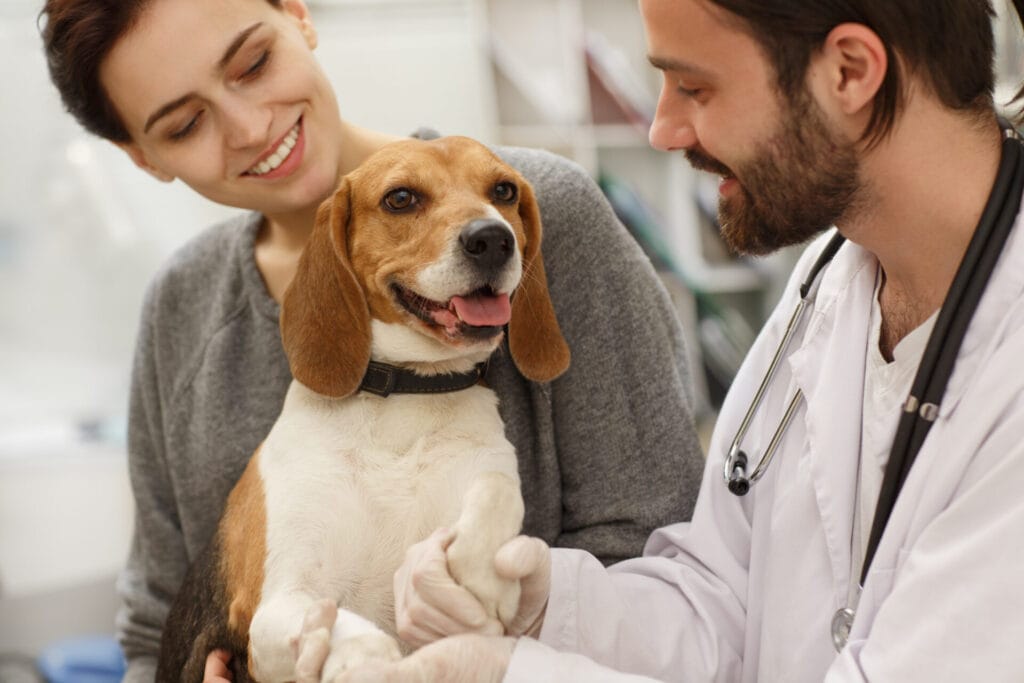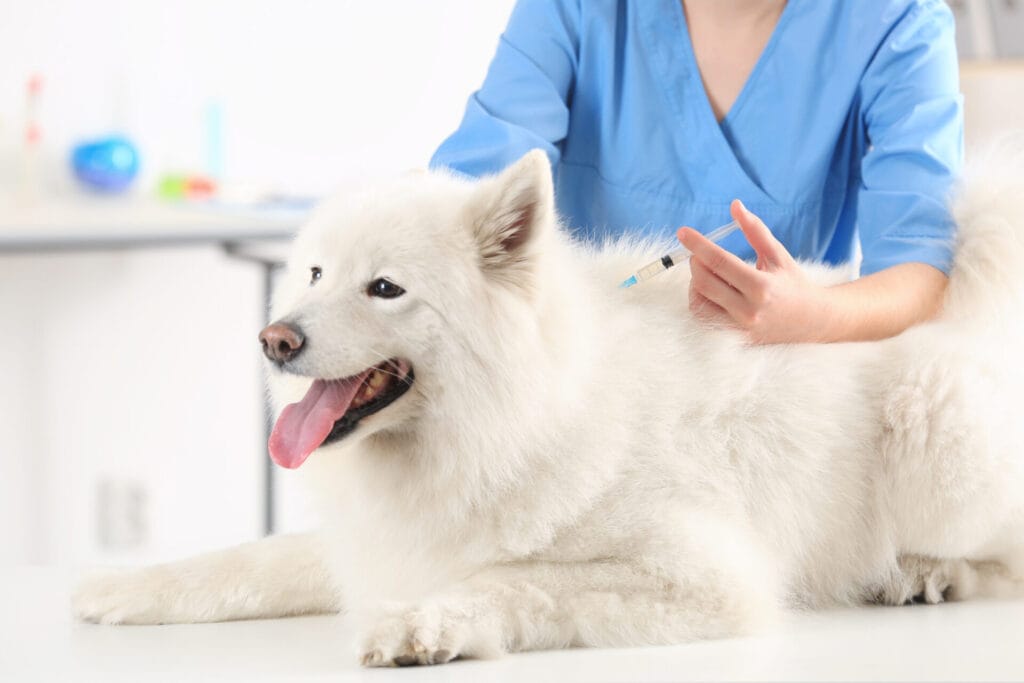Dog vaccination is not only a legal requirement in many jurisdictions, but it’s essential for protecting pets from life-threatening diseases. In this article, we will explore the importance of dog vaccination, its benefits, and why it should be an integral part of your dog’s healthcare routine.
1. Dog Vaccination Prevents Disease
Vaccinations are designed to protect dogs from various infectious diseases that can be harmful or even fatal. You can prevent common canine diseases, such as Canine Distemper, Canine Parvovirus, Rabies, Canine Hepatitis, and Canine Parainfluenza, through vaccination.
2. Herd Immunity
Vaccinating your dog protects them individually and contributes to the concept of “herd immunity.” When a significant proportion of the dog population is vaccinated, the spread of infectious diseases is significantly reduced. This helps protect vulnerable dogs that may not be able to receive vaccinations due to health conditions or age, such as puppies and older dogs with weakened immune systems.
3. Long-Term Cost Savings
While the upfront cost of vaccinations may seem like an expense, it is an investment in your dog’s long-term health. The cost of treating diseases can be substantial and may require hospitalization, medications, and veterinary intervention. By vaccinating your dog, you significantly reduce the risk of these costly illnesses, potentially saving both emotional distress and financial burden.
4. Compliance with Legal Requirements
In many jurisdictions, dog vaccination against rabies is a legal requirement. Compliance with these regulations not only ensures the safety of your dog but also protects public health. Failure to vaccinate your dog against rabies may result in legal consequences, potentially putting your pet and others at risk. Some jurisdictions may also legally require vaccination against other common diseases within the area.

Tailored Dog Vaccination Schedules
It’s important to note that vaccinations are not a one-size-fits-all approach. Your veterinarian will develop a tailored vaccination schedule based on factors such as your dog’s age, lifestyle, overall health, and local disease prevalence. Puppies typically require a series of vaccinations to build immunity, while adult dogs need regular booster shots to maintain their protection.
Consultation with a Veterinarian
To ensure your dog receives the appropriate vaccinations, consult with a trusted veterinarian. They will assess your dog’s needs and guide you on the most suitable vaccines and vaccination schedule. Regular veterinary check-ups are an excellent opportunity to discuss your dog’s vaccination status and address any questions or concerns you may have.
Dog vaccination is a fundamental aspect of responsible pet ownership. It protects your furry friend from potentially deadly diseases, contributes to public health, and can save you from significant emotional and financial stress. By adhering to a proper vaccination schedule and working closely with your veterinarian, you are taking a proactive step towards ensuring your beloved canine companion’s long and healthy life. Remember, prevention is key, and vaccination is crucial in safeguarding your pet’s well-being.




















